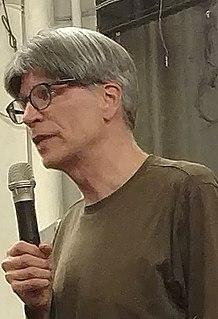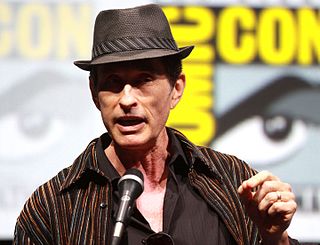A Quote by Anne Tyler
My writing day has grown shorter as I've aged, although it seems to produce the same number of pages.
Related Quotes
Should novels generally be 600 pages? No, they should not. Half of writing, maybe 3/4 of writing, is editing. This seems to be a thing that has not gotten through to them. It's my impression that you could get rid of half of most of these books. These people are not good enough to be this long, but they're apparently also not good enough to be shorter.
If you're 50 years old or younger, give every book about 50 pages before you decide to commit yourself to reading it, or give it up. If you're over 50, which is when time gets shorter, subtract your age from 100 - the result is the number of pages you should read before deciding whether or not to quit. If you're 100 or over you get to judge the book by its cover, despite the dangers in doing so.
Generally, I don't attempt to produce a certain number of words a day. The discipline is to work whether you are producing a lot or not, because the day you produce a lot is not necessarily the day you do your best work. So it's trying to do it as regularly as you can without making it - without imposing too rigid a timetable on your self. That would be my ideal.
Time passes, as the novelist says. The single most useful trick of fiction for our repair and refreshment: the defeat of time. A century of family saga and a ride up an escalator can take the same number of pages. Fiction sets any conversion rate, then changes it in a syllable. The narrator’s mother carries her child up the stairs and the reader follows, for days. But World War I passes in a paragraph. I needed 125 pages to get from Labor Day to Christmas vacation. In six more words, here’s spring.
I really do believe that chance favours a prepared mind. Wallace Stegner, who was one of my teachers when I was at Stanford, preached that writing a novel is not something that can be done in a sprint. That it's a marathon. You have to pace yourself. He himself wrote two pages every day and gave himself a day off at Christmas. His argument was at the end of a year, no matter what, you'd got 700 pages and that there's got to be something worth keeping.
I was a journalist. I was a drummer. I was everything. I didn't know what the heck I was. But with Jack Paar, the job was very specific - no confusion. You came in each day. You wrote five pages of jokes. You handed the pages in... The pressure was to write five pages of jokes every day. I did it, and I thought, 'This is what I like to do.'
I don't like to think in terms of writing ten or twelve pages a day. Usually I'm writing a scene, and it's always with the idea, "I wonder what is going to happen." Or sometimes I write about something that affected me emotionally the day before and that I don't want to lose. I'm very unorganized at first; but finally it comes into a structure where consciously I'm working on a novel per se.






































